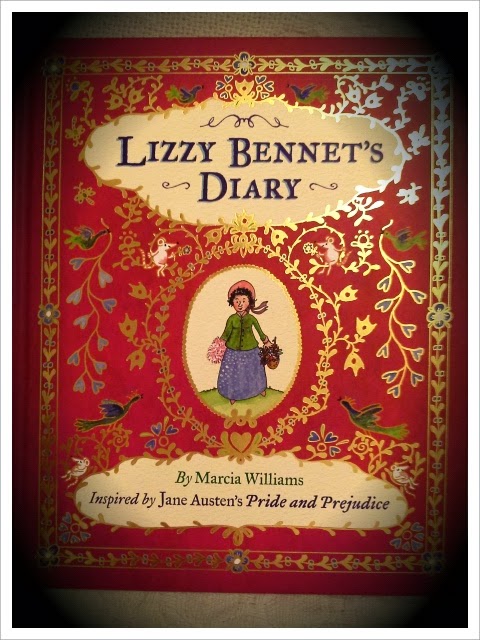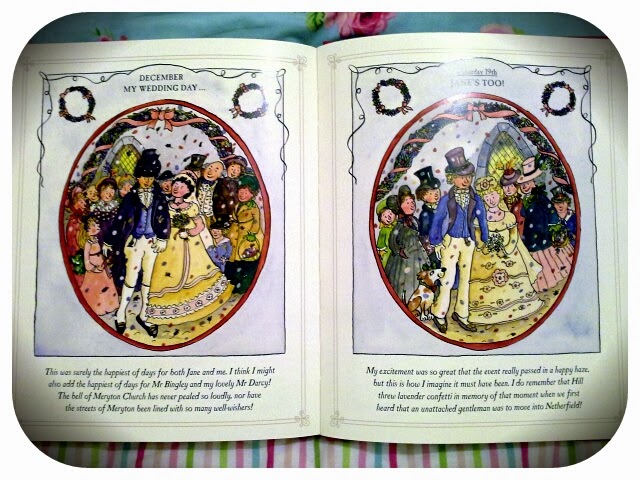Letter of February 16th, 1813 to Martha Lloyd
"I suppose all the World is sitting in Judgement upon the Princess of Wales's Letter. Poor woman, I shall support her as long as I can, because she is a Woman, & because I hate her Husband -- but I can hardly forgive her for calling herself ``attached & affectionate'' to a Man whom she must detest -- & the intimacy said to subsist between her & Lady Oxford is bad -- I do not know what to do about it; but if I must give up the Princess, I am resolved at least always to think that she would have been respectable, if the Prince had behaved only tolerably by her at first. --"
Today, some 201 years ago, this was what preoccupied Jane Austen's thoughts. While the behaviour of The Prince Regent, George Augustus Frederick, Prince of Wales, causes little concern to modern readers, it is Austen's strong reaction to his attempt at divorcing his wife, Princess Caroline of Brunswick, that is indeed very interesting.
Such a passionate, open expression of dislike for the future King of England, is extremely surprising in Austen, and is testament to her modern-thinking and strong sense of justice; or is it? Brought into the spotlight earlier than expected by the undeniable madness of his father, King George III, The Prince Regent was an unpopular royal; despised for his extravagance and gluttony, and often lampooned in the popular press by cartoonists and journalists alike. So perhaps Austen's readiness to chide the future king was not so unexpected after all; it was socially acceptable.
However, her declaration, in this private letter to her friend, that she supports Caroline, 'because she
is a
woman', surely tells us something of Austen's outlook on gender. She rebukes the princess mildly who, in a letter to her husband, that was later made public, addresses him as 'His Royal Highness'. Austen says, 'I can hardly forgive her for calling herself `attached & affectionate'' to a Man whom she must detest.' Here Austen seems to feel a natural affinity to the put-upon Princess because they are of the same gender.
As a daughter of a clergyman, with no rights or entitlement to property or land, the Austen women knew something of being short-changed in a male-dominated society. Jane and her sister Cassandra had been left homeless on their father's death because they had never married, and here was Princess Caroline, a married woman, having her rights and entitlements undermined by the highest in the land. It is not difficult to see why Jane Austen supported the Princess's claim for legal entitlement.
Of course, the irony is that Austen herself would use the very same phrase, 'His Royal Highness', three times when she came, albeit reluctantly, to dedicate her novel
'Emma' to the prince, at his request, in December of the following year. Knowing Austen and her sense of humour though, she was no doubt enjoying her own little joke at his expense, and showing her clear support, once again, and this time in public, for a mistreated wife, and
woman.
And as for Caroline - despite being supported by the British people, she was refused admittance, as Queen, to the King's coronation, three years after Austen's own death, in 1821. She arrived at Westminster Abbey, only to be turned from the door by armed guards and forced to go home. She took ill, later that night, and died three weeks later. (The cause of her
timely death has never been proven and some think she may have been poisoned.) While she was ill, she had time to write a new will, requesting that she be buried in her native Germany, with an inscription on her tomb reading:
'Here lies Caroline, the Injured Queen of England'. The new King George IV remained as unpopular as Jane Austen had known him to be, for the rest of his reign.

























